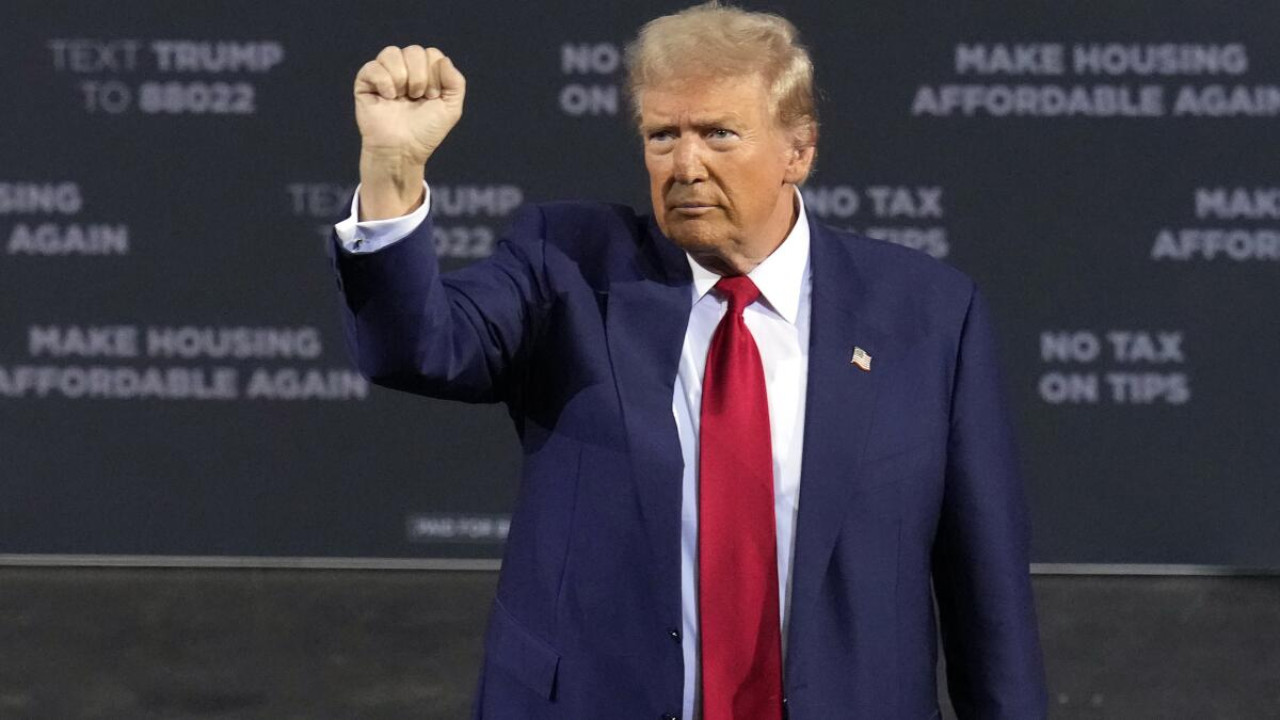President Donald Trump has recently made it abundantly clear that he will not support any proposed legislation that seeks to cut Social Security, Medicare, or Medicaid.
This marks a strong statement from the former president, who has long championed protecting these essential programs that many Americans rely on, especially seniors and low-income individuals.
The current discussions on Capitol Hill revolve around a proposed fiscal package, which is expected to be passed with significant Republican support.
At the heart of the legislation are efforts to extend the tax cuts initiated during Trump’s first term, as well as budget reductions to help offset the national deficit.
While this proposal holds considerable backing within the Republican party, Trump’s firm stance on safeguarding Social Security and health coverage benefits could serve as a key turning point in the ongoing debate over the nation’s fiscal priorities.
Trump’s Stand on Social Security and Medicare
One of the most pressing issues at the center of these discussions is the future of Social Security and federal health programs such as Medicare and Medicaid.
Despite being open to a range of budget cuts, Trump has unequivocally stated that he will not back any measures that lead to cuts in these programs.
For millions of Americans, especially those living on fixed incomes, Social Security serves as a vital financial lifeline, and Medicare and Medicaid provide essential health coverage. These programs are often a primary source of income and healthcare for seniors, disabled individuals, and low-income families.
Trump’s statement is crucial as it places a clear boundary on the scope of any potential cuts, especially as lawmakers aim to balance budgetary needs with social safety nets.
While Trump has indicated that he is open to addressing waste, fraud, and abuse within Medicaid, which is an area that many believe could be streamlined, he remains adamant that cuts to direct benefits for seniors and vulnerable populations are off the table.
The Challenge of Balancing Budget Cuts with Social Programs

The legislation currently under discussion has a target to find $4 billion in reductions. This is considered a relatively modest figure in the context of the federal budget.
However, the issue has become far more complex with the rise of conservative voices in Congress, particularly among some House Republicans, who are pushing for far more significant cuts.
These members are advocating for reductions in federal spending totaling up to $2 trillion over the next decade. If such cuts were to go through, it could have a drastic impact on programs like Medicaid, food stamps, and other essential services that millions of Americans depend on.
Despite this pressure, some moderate Republicans have expressed concern about the potential impact of these cuts on vulnerable communities.
A group of these Republicans has reportedly secured a commitment from House Speaker Mike Johnson that the final version of the bill will not include cuts to benefits for qualified Medicaid recipients.
This agreement signifies a divide within the Republican party, where some lawmakers are prioritizing fiscal conservatism, while others are more focused on protecting the nation’s most vulnerable populations from budget cuts.
The debate is expected to continue over the coming weeks, as lawmakers attempt to balance budgetary priorities with the pressing need to preserve programs that support low-income families and seniors.
A Broader Debate Within the Republican Party
The dispute over budget cuts and social safety nets highlights a broader divide within the Republican Party. While conservative members argue that reducing spending in entitlement programs is necessary to curb the national debt, others within the party are more cautious.
Some senators, especially those with constituencies that rely heavily on Social Security and federal health programs, are vehemently opposed to cutting these benefits.
This divide reflects an ongoing tension within the Republican Party over the role of government in supporting social programs.
For many, these programs are seen as essential to ensuring the well-being of the most vulnerable members of society, and any cuts to them would be detrimental to millions of Americans.
On the other hand, fiscal conservatives argue that reducing spending on these programs is crucial to reducing the national deficit and ensuring long-term economic stability.
Trump’s position seems to be aligning with the latter group, yet his refusal to allow cuts to Social Security and health programs could complicate efforts to secure broader support for other aspects of the fiscal package.
While Republicans in Congress remain committed to pursuing the tax cuts proposed in the legislation, the future of these cuts and the potential impacts on Americans will remain uncertain until the final package is approved.
The Upcoming Timeline for Fiscal Legislation
The timeline for passing this legislation is rapidly approaching, adding further urgency to the debate. House Speaker Mike Johnson has set a goal for the legislation to be enacted by late May, while Senate Republicans hope to have it finalized by August.
This timeline is particularly critical as the tax cuts passed in 2017 are set to expire at the end of the year, which could create significant economic uncertainty if not renewed.
In addition to tax cuts, the proposed legislation includes provisions to raise the nation’s debt ceiling by $5 trillion, a measure designed to prevent a default on U.S. government debt.
The potential combination of tax cuts and increased borrowing has sparked concerns about the long-term fiscal health of the country, with many warning that these moves could exacerbate the nation’s debt problems.
As negotiations continue, lawmakers are grappling with the delicate balance between renewing tax cuts and ensuring that the nation’s safety nets remain intact.
For Trump, his position on Social Security and health programs is a defining issue, and one that could shape his legacy as a leader committed to protecting the interests of the American people, particularly those most in need.
Implications for Americans and Future Policy
The outcome of this debate will have lasting implications for millions of Americans. If the legislation passes with significant cuts to social programs, it could mean reduced benefits for many vulnerable groups, including seniors and low-income families.
On the other hand, if lawmakers succeed in reaching a compromise that protects these benefits, it could signal a more balanced approach to fiscal policy.
As Congress works toward a final deal, the stakes could not be higher. Social Security, Medicare, and Medicaid are not just political issues; they are vital lifelines for millions of Americans.
The decision lawmakers make in the coming months will determine whether these programs remain strong or are significantly altered.



